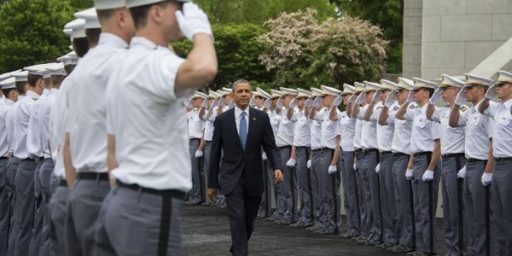Return of the realists?
The report soon to be released by the Iraq Study Group headed by former George H. W. Bush Secretary of States James Baker and the appointment of Robert Gates as Defense have been hailed by many as signalling a return to realism in international relations by the Bush Administration. I suppose it depends on what you mean by foreign policy realism.
As I understand it realism in international relations means the understanding that states are self-interested, power-seeking rational actors. Contemporary foreign policy realists point to thinkers like Machiavelli and Hobbes as their antecedents. It’s considered a pessimistic, some would say cynical, point of view.
Is that the stamp of Mssrs. Baker and Gates? Or are they Hamiltonian “realists” which I’d characterize as a form of optimism whose adherents believe that international relations can be managed to the benefit of U. S. economic interests? I can’t view a return to that sort of realism with unmixed joy. I think it’s at least arguable that sort of realism contributed directly to 9/11 in the form of support for local powers to produce stability (i.e. “support of oppressive regimes”), positioning huge military bases all over the region when that failed (i.e. “occupation of Muslim lands”), and intervening in the Middle Eastern states in the Gulf War (“it’s all about the oil!”). The realist policy that contained Saddam Hussein through a combination of the no-fly zone in Iraqi Kurdistan and troops stationed in the Kingdom of Saudi Arabia was cited by Usama bin Laden as a specific reason for the attack on 9/11.
If George W. Bush’s Wilsonian experiment in Iraq has, indeed, failed I wonder if we’ll cycle back to another form of optimism. Or is it more likely we’ll adopt a pessimistic view of relations with other countries and international institutions, either interventionist or isolationist?
Not all forms of realism are created equal. If realism means a form of pragmatism in which interests are prioritized, costs are considered honestly, and benefits are evaluated with opened eyes, it’s quite possible for two different experts to arrive at contrary views on what our policy should be with respect to Iraq. Such an exchange took place recently between Charles Peña and J. Peter Pham in National Interest Online (I understand a longer form of the debate between them will soon appear in article form).
Cross-posted to The Glittering Eye.




That’d be SecDef, not SecState.
Thank you. Woolgathering, as usual.